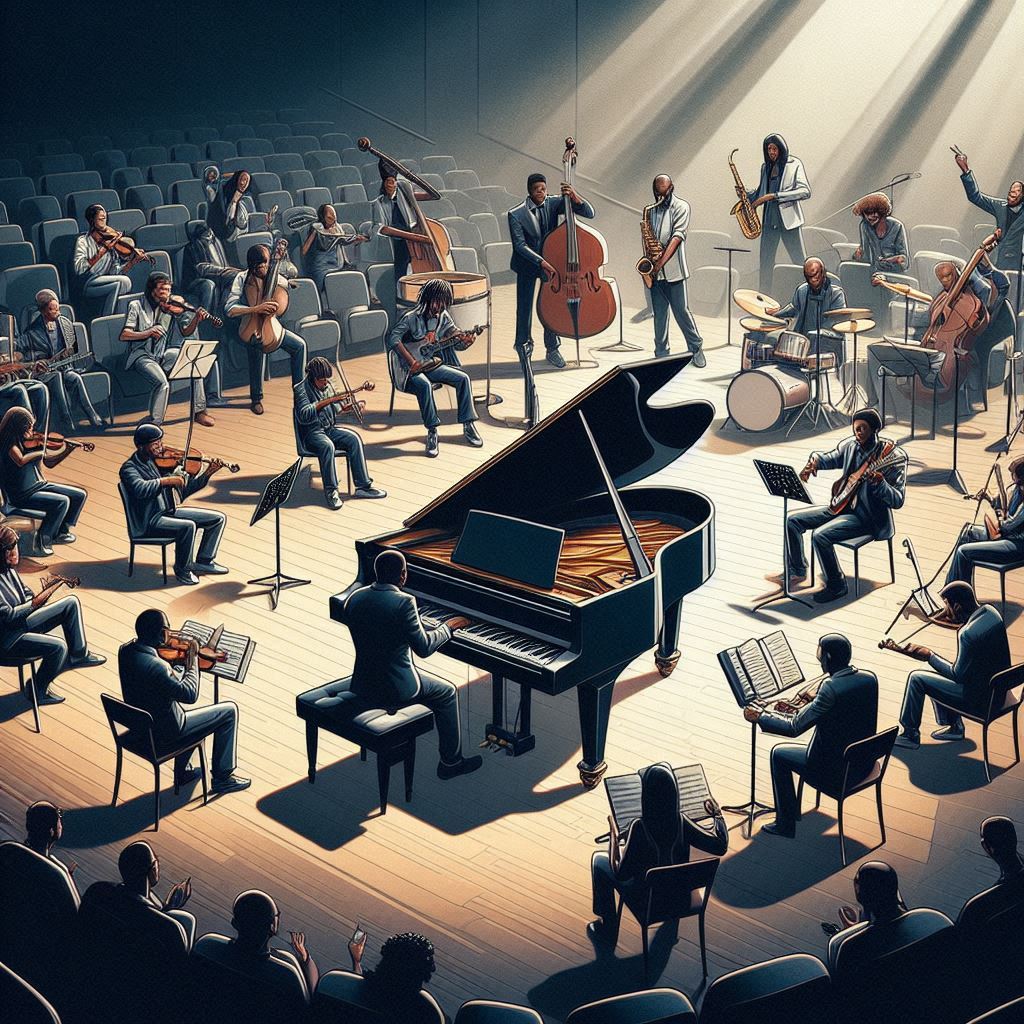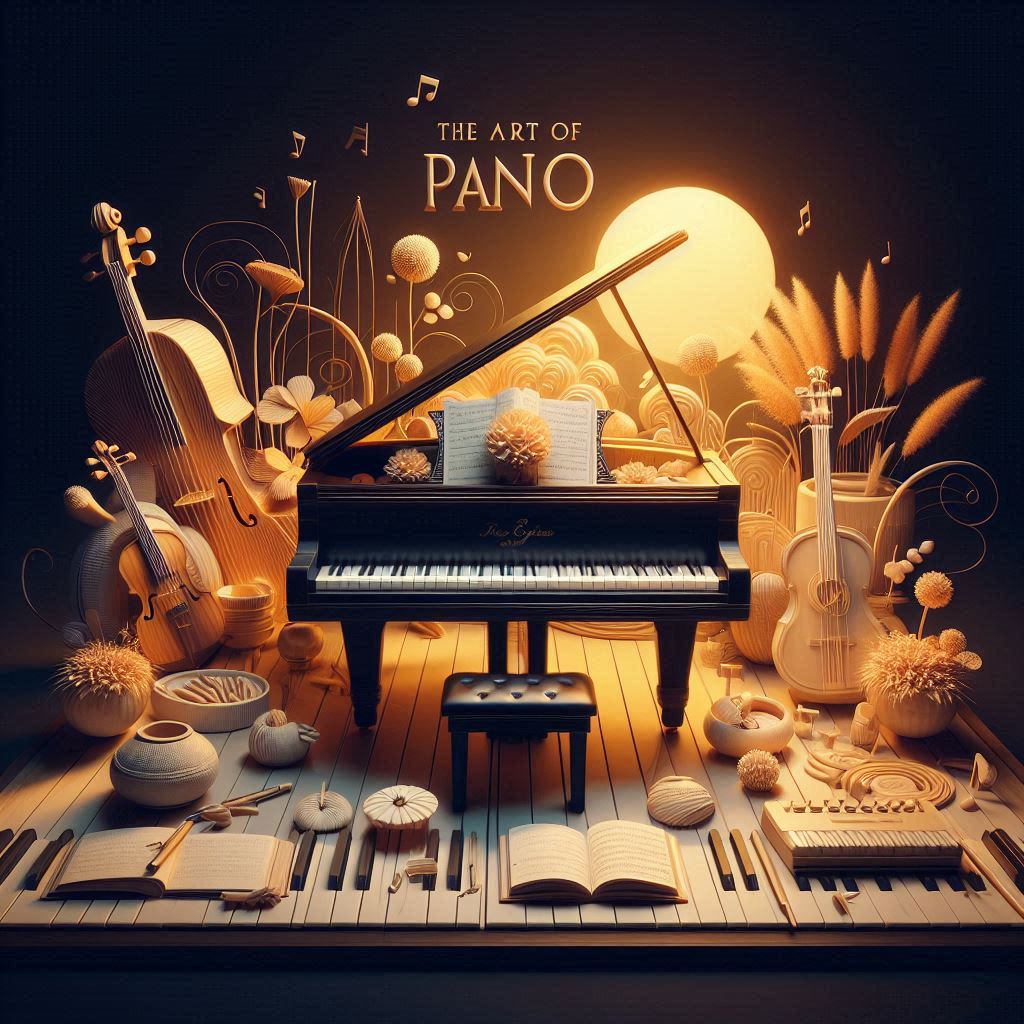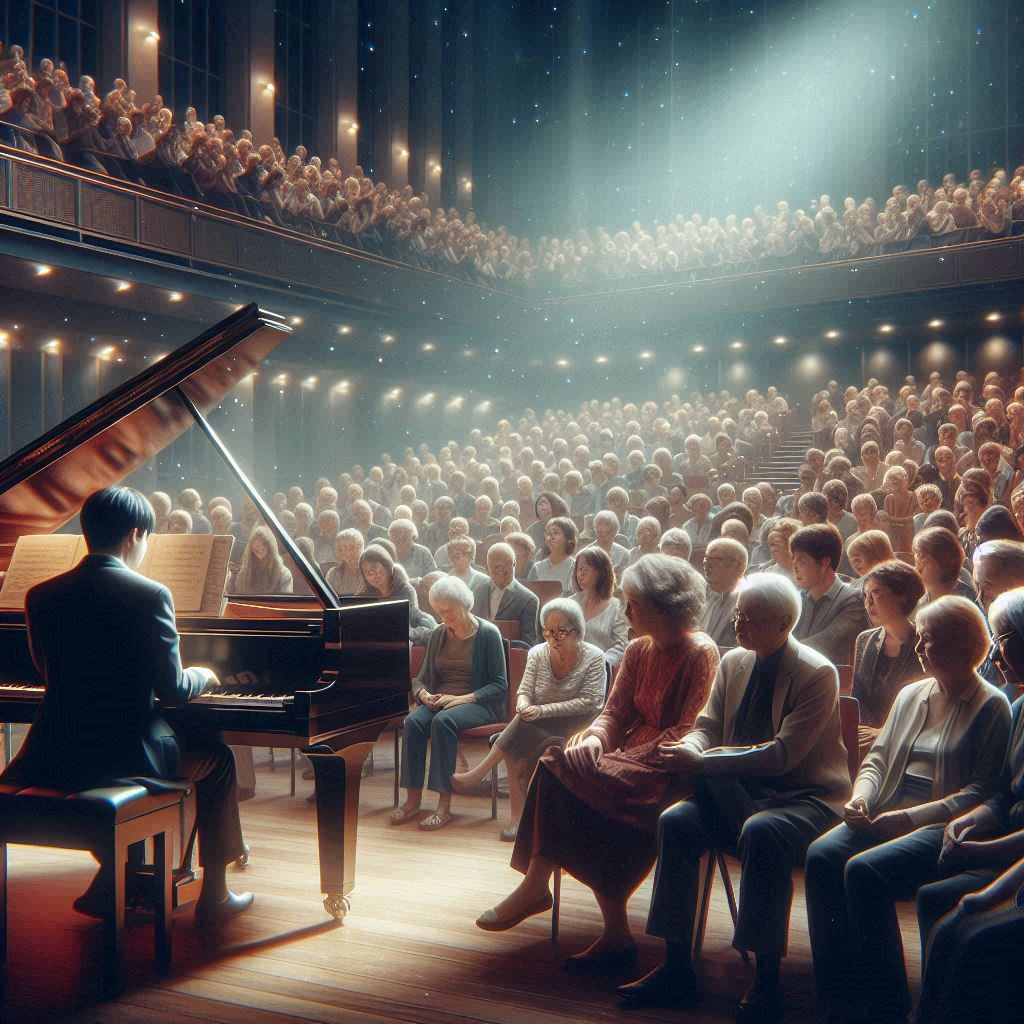Introduction
The piano is one of the most versatile instruments in the world, playing a pivotal role in a wide array of music genres. Its broad range, dynamic expression, and harmonic capabilities make it an indispensable tool for composers and performers alike. This article explores the role of the piano in different music genres, highlighting its unique contributions and adaptations across various styles.
The Piano in Classical Music
Foundation of Western Classical Music
In classical music, the piano is a cornerstone. From solo recitals to concertos with full orchestras, the piano has a rich history and repertoire in this genre.
Notable Composers and Works
Ludwig van Beethoven
Beethoven’s piano sonatas and concertos are monumental works that pushed the boundaries of the instrument’s capabilities. His pieces, such as the “Moonlight Sonata,” showcase the piano’s expressive power and technical demands.
Frédéric Chopin
Chopin’s compositions are celebrated for their emotional depth and technical brilliance. His works, including nocturnes, waltzes, and etudes, highlight the lyrical and virtuosic potential of the piano.
Role in Ensembles
In classical ensembles, the piano often serves as both a solo and accompanying instrument. It provides harmonic support in chamber music and plays a crucial role in vocal accompaniments and symphonic works.
The Piano in Jazz Music
A Catalyst for Innovation
Jazz piano is known for its improvisational nature and complex harmonies. The piano’s versatility allows jazz musicians to explore a wide range of sounds and styles.
Pioneering Jazz Pianists
Thelonious Monk
Monk’s unique approach to the piano and innovative use of dissonance and rhythm have left a lasting impact on jazz. His compositions, such as “Round Midnight,” remain jazz standards.
Bill Evans
Evans’ sophisticated harmonies and lyrical playing style have influenced countless jazz pianists. His work with Miles Davis on the album “Kind of Blue” is particularly noteworthy.
Role in Jazz Ensembles
In jazz ensembles, the piano often serves as both a lead and accompanying instrument. Pianists provide harmonic structure, rhythm, and melodic improvisation, making them central to the jazz sound.
The Piano in Rock and Pop Music
A Versatile Instrument in Popular Music
The piano has been a staple in rock and pop music since the genres’ inception. Its ability to produce both powerful and delicate sounds makes it ideal for a wide range of songs.
Iconic Rock and Pop Pianists
Elton John
Elton John’s piano-driven songs and flamboyant performance style have made him a pop music icon. Hits like “Your Song” and “Rocket Man” showcase his talent and the piano’s role in mainstream music.
Freddie Mercury
As the frontman of Queen, Mercury’s piano playing was integral to the band’s sound. Songs like “Bohemian Rhapsody” highlight his skill and the piano’s dramatic potential in rock music.
Role in Bands and Solo Acts
In rock and pop bands, the piano often provides harmonic support, rhythmic drive, and melodic lines. It can be featured as a lead instrument in ballads and up-tempo tracks alike, demonstrating its adaptability.
The Piano in Blues and Gospel Music
Expressive and Soulful Playing
The piano’s ability to convey deep emotion makes it a perfect fit for blues and gospel music. Its dynamic range allows for both powerful and subtle expression.
Influential Blues and Gospel Pianists
Ray Charles
Charles’ fusion of blues, gospel, and jazz created a unique sound that influenced many genres. His piano playing and soulful voice made songs like “Georgia on My Mind” timeless classics.
Aretha Franklin
Known as the “Queen of Soul,” Franklin’s gospel-influenced piano playing was central to her music. Her rendition of “Respect” remains a powerful anthem.
Role in Genre
In blues and gospel music, the piano often serves as the backbone of the ensemble. It provides rhythmic foundation, harmonic richness, and emotional depth, enhancing the genre’s storytelling nature.
The Piano in Contemporary and Experimental Music
Exploring New Sounds
Contemporary and experimental music often push the boundaries of traditional piano playing. Composers and performers use the piano to explore new sonic landscapes and innovative techniques.
Avant-Garde Pianists and Composers
John Cage
Cage’s experimental works, such as “4’33”,” challenged conventional notions of music and performance. His prepared piano pieces, which involve placing objects on the strings, expanded the instrument’s sonic possibilities.
Philip Glass
Glass’ minimalist compositions use repetitive structures and gradual changes, creating a hypnotic effect. His piano works, like “Glassworks,” exemplify this style and have influenced many contemporary composers.
Role in New Music
In contemporary and experimental music, the piano is often used to explore unconventional sounds and techniques. It serves as a versatile tool for composers seeking to innovate and expand the boundaries of musical expression.
FAQs
How does the role of the piano differ between classical and jazz music?
In classical music, the piano often serves as a solo and accompanying instrument, focusing on precise execution and interpretation of written music. In jazz, the piano’s role is more improvisational, emphasizing spontaneous creation and complex harmonies.
Why is the piano important in rock and pop music?
The piano’s versatility allows it to fit seamlessly into various styles of rock and pop music. It can provide both harmonic support and melodic lines, making it a valuable asset in bands and solo performances.
What makes the piano suitable for blues and gospel music?
The piano’s dynamic range and expressive capabilities make it ideal for conveying the deep emotions found in blues and gospel music. It can deliver powerful chords and subtle nuances, enhancing the genre’s emotional impact.
How is the piano used in contemporary and experimental music?
In contemporary and experimental music, the piano is used to explore new sounds and techniques. Composers and performers often experiment with unconventional playing methods and sonic manipulations to push the boundaries of traditional piano music.
Who are some notable pianists in jazz music?
Notable jazz pianists include Thelonious Monk, known for his innovative use of dissonance, and Bill Evans, celebrated for his sophisticated harmonies and lyrical style.
What is the significance of the piano in classical music ensembles?
In classical ensembles, the piano provides harmonic support and can serve as a solo instrument. It plays a crucial role in chamber music, vocal accompaniments, and orchestral settings, contributing to the ensemble’s overall sound and texture.
Conclusion
The piano’s versatility and expressive power make it an integral part of numerous music genres. From the structured compositions of classical music to the improvisational spirit of jazz, the piano adapts and enhances the unique characteristics of each style. Whether in rock, pop, blues, gospel, or contemporary music, the piano continues to inspire and elevate musical expression, solidifying its place as one of the most beloved and influential instruments in the world.



